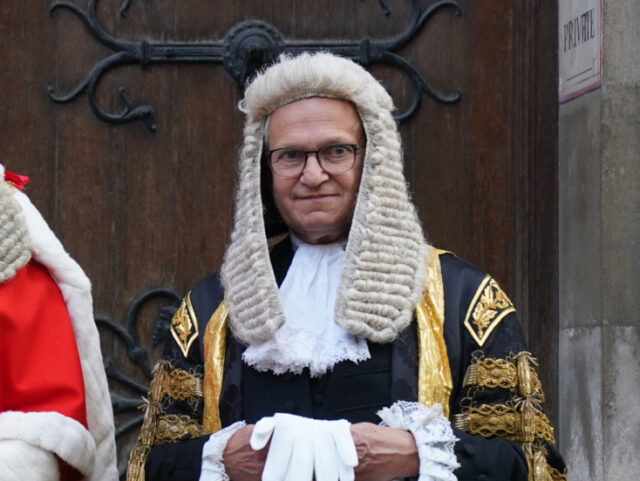Artificial Intelligence could possibly replace judges in some UK court disputes in the future, a senior British judge has said.
Geoffrey Vos, the Master of the Rolls in England and Wales, has expressed the belief that A.I. could be used to replace human adjudicators in some UK court cases in the future.
The senior judge encouraged the legal profession in the countries to keep pursuing the use of generative artificial intelligence — such as ChatGPT — both inside and outside the courtroom, a position that appears to be at odds with others in the tech sector who have warned that research should be halted until regulations can catch up with advances.
Speaking at the Lincolns Inn on Wednesday, however, Vos said that London’s commercial courts in particular should be pursuing the use of A.I. with great interest, describing the technology as already having proved capable of dealing with issues within the legal profession.
“You will probably all have seen that when GPT-3.5 took the Bar exams (US ones, I imagine) not long ago, it came in the bottom 10 per cent, but when GPT-4 took them just recently, it came in the top 10 per cent,” he said while addressing a crowd as part of the McNair Lecture series.
“This demonstrates the speed at which generative AI is developing. It perhaps makes the point that there is a real possibility that AI may become more intelligent and capable than humans,” he added. “It is obvious that these advances will affect the legal world as much as any other part of our society.”
A man reportedly committed suicide after speaking with an AI chatbot called Chai, sparking debate on AI's impact on mental health. The man's widow blames the AI Chatbot for his death, claiming it encouraged him to kill himself. https://t.co/B7fgHB6Nf2
— Breitbart News (@BreitbartNews) April 3, 2023
In particular, the senior judge referenced the high cost of commercial cases in front of the UK court system, saying that A.I. adjudication in some UK courtrooms could ultimately make the civil justice system in the country both cheaper and quicker for businesses, allowing resolutions to be arrived at more easily.
“If London is to retain its place as a litigation and arbitration destination of choice, it will be imperative to embrace digital innovation and AI to do what it does best, namely dealing with a complex mass of material,” he argued.
“The central element of any dispute resolution process is to identify the issue or issues that divide the parties,” Vos continued. “It is here that generative AI may be able to help. It may be that the power of AI could identify, from a mass of complex facts and transactions, the real issues that divide the parties and that require resolution.”
Such an acceleration, the senior judge added, would likely only be aided by the rise of digital currencies — both Central Banck issued and cryptocurrencies — which will make it easier to ascertain the nature, value and timeframe of transactions due to them being recorded on an easily referencable blockchain.
He also said that such automated decision-making should be clearly labelled, with Vos also seeing the possibility of appealing a decision to a human justice as being a requirement for such a change to be implemented.
“I am not offering any kind of blueprint for reform tonight,” he went on to say. “But I am sure that if London is to remain at the forefront of international commercial dispute resolution, it will need to move fast to address these and other fundamental issues of litigation and arbitral procedure.”
1,000 AI experts, including Tesla and Twitter CEO Elon Musk and Apple co-founder Steve Wozniak, have called for a temporary halt on the advancement of AI technology until safeguards can be put in place. https://t.co/oXX09BJ7q1
— Breitbart News (@BreitbartNews) April 1, 2023

COMMENTS
Please let us know if you're having issues with commenting.